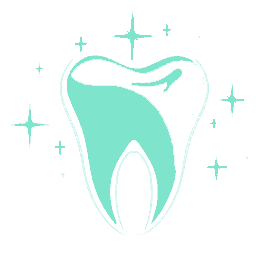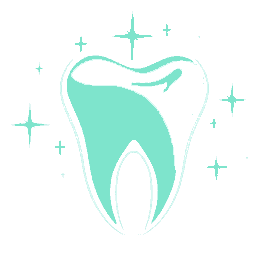Welcome to our exploration of teeth whitening strips, a popular method for brightening smiles right here in Buffalo. Many of us wonder about the safety and effects of these convenient at-home treatments. In this post, we’ll delve into what teeth whitening strips are, their benefits, potential risks, and some important FAQs to help you make informed decisions about your dental health.
What are Teeth Whitening Strips?
Teeth whitening strips are thin, flexible strips coated with a whitening gel containing hydrogen peroxide, which is the active ingredient responsible for removing surface stains from teeth. To use them, you simply apply the strips to your upper and lower teeth, following the instructions on the package.
Benefits of Using Teeth Whitening Strips
Teeth whitening strips offer several advantages that make them a favorite choice among people looking to enhance the brightness of their smiles. Firstly, these strips are highly effective at removing surface stains caused by foods, drinks, or smoking.
Another major benefit is the accessibility and convenience of whitening strips. Unlike professional dental whitening treatments, which can be costly, whitening strips are readily available at most drugstores and supermarkets. Additionally, you can use them in the comfort of your own home and on your own schedule.
Safety Concerns and Side Effects
While teeth whitening strips are an effective way to brighten your smile, there are safety concerns and side effects that you should be aware of before using them. The primary ingredient in most whitening strips, hydrogen peroxide, can cause tooth sensitivity and irritate gum tissue if the strips are not applied correctly or if they are used too frequently.
…there are safety concerns and side effects that you should be aware of before using them.
Tooth Sensitivity
Many users experience increased tooth sensitivity during the treatment period. This happens because the hydrogen peroxide in the whitening gel temporarily opens the pores in the enamel, allowing the bleaching agent to reach the inner layers of the tooth where stains reside. This exposure can make your teeth more sensitive to temperature changes, such as hot and cold beverages.
Gum Irritation
If the whitening strips come into contact with your gums, they can cause irritation and discomfort. It’s important to apply the strips carefully to avoid contact with your gums and to follow the recommended application time to minimize any potential irritation.
Enamel Damage
Prolonged use of whitening strips or using strips with a high concentration of hydrogen peroxide can lead to enamel erosion. This is why it’s crucial to use these products as directed and to consult with a dental professional if you plan to use whitening strips regularly.
Chemical Burns
In rare cases, improper use of teeth whitening strips can cause chemical burns on the gums or the insides of your mouth. This typically occurs when the strips are left on for too long or used too frequently.
Are Whitening Strips Safe for Everyone?
Teeth whitening strips are not suitable for everyone, and certain individuals should exercise caution or avoid them altogether.
Pregnant or Nursing Women
There is limited research on the effects of whitening products during pregnancy or lactation, so it is advisable for pregnant or nursing mothers to avoid these products as a precaution.
People with Gum Disease, Sensitive Teeth, or Damaged Enamel
If you have active gum disease, receding gums, or damaged enamel, the chemicals in whitening strips may exacerbate these conditions. Similarly, those with inherently sensitive teeth might find the sensitivity worsens after using whitening products.
Children and Adolescents
The American Dental Association recommends that children under the age of 16 should not use whitening products. This is because the nerves in their teeth are larger and more susceptible to irritation by the chemicals in whitening agents.
Frequently Asked Questions
When considering teeth whitening strips, many people in Buffalo have similar questions about their use, safety, and effectiveness. Here are answers to some of the most frequently asked questions:
How often can I use teeth whitening strips without damaging my teeth?
You should follow the specific recommendations on the product’s packaging, but generally, it’s safe to use teeth whitening strips once every six months for maintenance. Using them more frequently can increase the risk of tooth sensitivity and enamel damage.
What should I do if I experience sensitivity or pain after using whitening strips?
If you experience tooth sensitivity or pain after using whitening strips, consider taking a break from treatment and using toothpaste designed for sensitive teeth. If the sensitivity persists, consult with your dentist. They may recommend treatments to alleviate sensitivity or suggest alternative whitening methods.
Can whitening strips replace professional dental cleaning or whitening?
No, whitening strips are designed to remove surface stains and are not a substitute for professional dental cleaning. Professional cleanings remove plaque and tartar, which can’t be achieved with whitening strips alone. For deep stains or comprehensive oral health maintenance, professional cleaning and whitening are recommended.
Are there any teeth whitening methods that don’t involve chemicals?
Yes, some natural methods don’t involve harsh chemicals, such as oil pulling with coconut oil and brushing with baking soda. These methods can help reduce surface stains and improve oral hygiene but may not be as effective at whitening as products containing peroxide.
Conclusion
Teeth whitening strips can be a convenient option for brightening your smile when used correctly. However, it’s essential to understand their potential risks and limitations. By following best practices and considering alternatives, you can achieve a whiter smile safely. Always consult your dentist in Buffalo for personalized advice tailored to your dental health needs.


